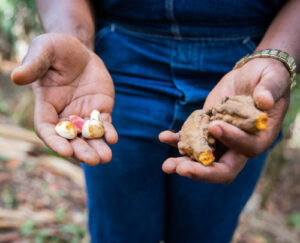
Somewhere between the thorns and dust of Limpopo’s dry heartland lies a memory that won’t sit still. It rises with the wind, clings to cracked earth, and waits at the edge of farm roads that don’t always appear on maps. It’s not the kind of gold you wear around your neck or store in a bank vault. This gold sleeps in the soil, in the forgotten ridges and rusted shafts of a province that once believed it could glitter forever.
Today, Limpopo is better known for citrus orchards, roadside stalls, and game farms. But before that, before the tar reached this far and before the horizon was carved by tourism and trucks, there was a different rhythm here, one that pulsed beneath the feet of migrant workers, old prospectors, and villagers whose dreams were coated in dust. Gold in Limpopo isn’t a myth. It’s history left half-buried.
During the lesser-known waves of South African mining, Limpopo quietly whispered its presence. It never boomed like the Witwatersrand. It didn’t echo with the chaos of Joburg or shiver with the corporate weight of the Northern Cape. But still, it mattered. It mattered enough to draw families northward in search of promise. Enough for farmers to dig deeper, for towns to stretch outward. Enough for stories to root themselves between the aloes and the acacias.
The rush never became a stampede. Investors moved south. Machinery broke down. Permits expired. The ore veins ran thinner than expected, or just too difficult to reach without money or patience. And so, the fields were left to sleep again. The shafts filled with silence. The shacks and shelters built from hope and corrugated iron collapsed into themselves. And just like that, Limpopo’s gold slipped into memory.
Because the gold never left. It simply became invisible to the eye that doesn’t look too closely. Locals still talk about it, not with fanfare, but with that peculiar South African blend of realism and inherited pride. Somewhere out there, past the sugarbush and termite hills, are veins not yet tapped. Old men claim they know where the richest ground lies. Young men dream of finding it. And every so often, someone actually does. A forgotten shaft opens. A glint in a stone catches light. A whisper travels from one village to the next. People dig, not with industrial plans or government permits, but with spades, plastic buckets, and the belief that maybe, just maybe, the land still owes them something.
This kind of gold economy doesn’t make headlines or GDP statistics. It’s quiet, fragile, and unsanctioned. It feeds one family at a time, sometimes only for a month. The gold pulled from these fields doesn’t end up on export spreadsheets, it ends up in small town pawn shops, jewellery remelting pots, and secret trades whispered through rural networks. It never leaves Limpopo. It circles within it. But it’s not just the gold that remains. It’s the memory of work. Of digging. Of trying.
There are patches of land in Limpopo where nothing grows, not because the soil is infertile, but because it has been disturbed too many times. A dozen hands have turned it, flipped it, stripped it. The topsoil has moved. The dust doesn’t settle. These fields tell the story of people who tried to turn ground into fortune, and in doing so, left their mark even when the fortune didn’t come.
 Migrants from neighbouring provinces. Zimbabwean men chasing a rumour. Families escaping city rents. They arrive with nothing, because they expect to build everything from scratch. There are no formal operations waiting. No safety protocols. No systems. Just stories of gold, and the quiet knowledge that dust can sometimes deliver more than city promises.
Migrants from neighbouring provinces. Zimbabwean men chasing a rumour. Families escaping city rents. They arrive with nothing, because they expect to build everything from scratch. There are no formal operations waiting. No safety protocols. No systems. Just stories of gold, and the quiet knowledge that dust can sometimes deliver more than city promises.
The tunnels collapse. The land gives way. And the law, when it shows up, doesn’t knock gently. Small-time diggers are chased off or locked up. Entire makeshift camps disappear in days. But then, the silence doesn’t last long. Because poverty doesn’t fear risk. It just adapts.
These forgotten fields of Limpopo have become something more than resource zones. They’ve become metaphors for survival. They represent the uneasy space between ownership and access, between wealth and memory. In a province where unemployment haunts entire towns, gold becomes more than a metal. It becomes an idea. An idea that maybe you don’t need a university degree to earn something valuable. Maybe you don’t need a boss to feel useful. Maybe, just maybe, the earth beneath your feet holds more power than a payslip. It’s a dangerous idea. But it’s also a deeply South African one.
This country has always had complicated relationships with its soil. We extract from it, export from it, fight over it. Land is political. Land is personal. In Limpopo, land is also haunted, by the ghosts of failed projects and the ghosts of those who once believed.
What the world forgets is that not every mining story ends in either tragedy or triumph. Sometimes, it ends in dust. Not because the gold wasn’t there, but because the system didn’t stay.
Underfoot. In memory. In the calloused hands of a man holding a pan and squinting into sunlight. In the quiet determination of a woman who sells the soil she sifts, not because it’s guaranteed, but because it’s hers to try. The fields of Limpopo aren’t empty. They’re just waiting.
And every so often, when the wind lifts the dust just right, you’ll see it, a shimmer, a promise, a piece of history still writing itself.



